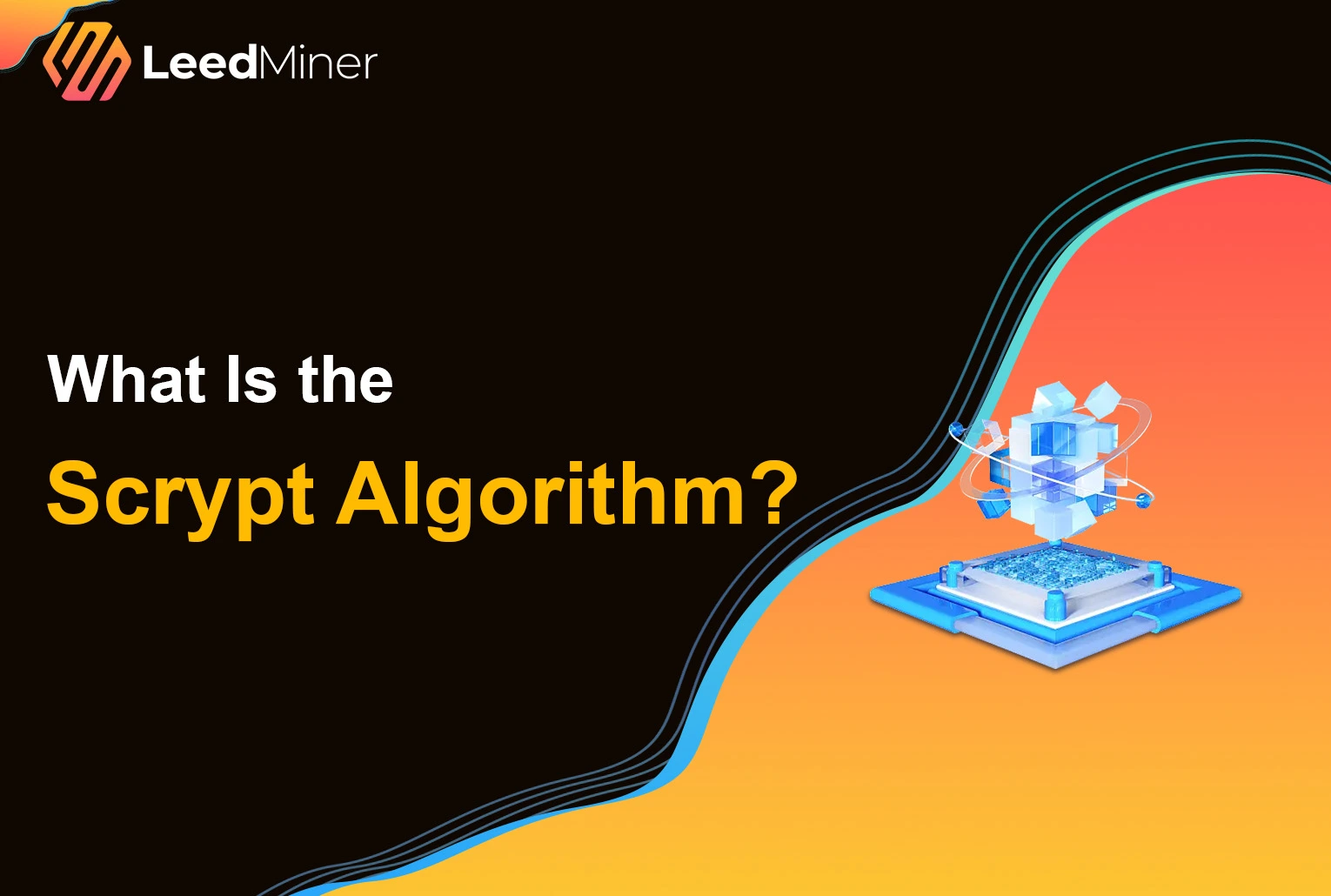SUMMARY
In the world of cryptocurrency mining, different algorithms define how coins are mined, secured, and verified. One such algorithm — widely used but often misunderstood — is Scrypt. Known for powering coins like Litecoin (LTC) and Dogecoin (DOGE), the Scrypt algorithm plays a crucial role in the broader Proof-of-Work (PoW) ecosystem.
This article will explore what Scrypt is, how it works, which coins use it, how it compares to other algorithms like SHA-256, and why it remains relevant to miners and developers today.
What Is the Scrypt Algorithm?
Scrypt is a cryptographic key derivation function designed to be memory-intensive and resistant to brute-force attacks. It was introduced by Colin Percival in 2009, originally for Tarsnap, a secure online backup service. It was later adopted in the cryptocurrency space as a mining algorithm.
In blockchain systems, Scrypt is used as a Proof of Work (PoW) algorithm, ensuring consensus and network security through computational effort and memory usage.
What Is Scrypt Used For?
Scrypt has two primary use cases:
- Cryptocurrency Mining It serves as the mining algorithm for many popular PoW coins such as Litecoin and Dogecoin. Its memory-hard nature was initially designed to make mining more accessible to CPUs and GPUs.
- Secure Key Derivation Outside of crypto, Scrypt is used in password-based key derivation functions (KDFs), protecting stored passwords by making brute-force attacks computationally and memory-expensive.
How Does Scrypt Work?
Scrypt works by creating a large number of pseudo-random memory accesses during the hashing process. This makes it memory-intensive, meaning it’s harder to parallelize without significant RAM resources.
Key Characteristics:
- Memory-Hard Function: Uses RAM as a limiting factor to prevent large-scale ASIC optimizations.
- Fast Key Derivation: Especially in password hashing applications.
- Designed for Decentralization: Initially more CPU/GPU-friendly, though ASICs now dominate Scrypt mining.
Which Coins Use the Scrypt Algorithm?
Scrypt powers several well-known cryptocurrencies and meme coins. Below is a list of notable Scrypt-based coins:
| Coin | Description |
|---|---|
| Litecoin (LTC) | The first and most prominent Scrypt coin, launched in 2011 |
| Dogecoin (DOGE) | Meme coin originally based on Litecoin; supports merged mining |
| Shibacoin (SHIC) | A modern Scrypt coin supporting merged mining and halving |
| Viacoin | Fast transaction coin forked from Litecoin |
| Feathercoin | Early Litecoin fork focused on community mining |
| DogeCash, Dingo, LKY | Emerging merged-mining coins supported by ViaBTC |
Many of these coins can be mined simultaneously through merged mining, using a single miner setup.
Scrypt vs. SHA-256: Key Differences
| Feature | Scrypt | SHA-256 |
|---|---|---|
| Algorithm Type | Memory-hard | Compute-intensive |
| ASIC Resistance | Initially yes, now no | Not resistant |
| Mining Hardware | ASICs like L3+, L7, LT6 | ASICs like S19, S21 |
| Energy Efficiency | Lower than SHA-256 | Higher power consumption |
| Block Time (LTC/BTC) | 2.5 minutes (LTC) | 10 minutes (BTC) |
| Coins | LTC, DOGE, SHIC | BTC, BCH, BSV |
Is Scrypt Better Than SHA-256?
That depends on your use case:
- Scrypt is better for:
- Faster block times (e.g., LTC: 2.5 min vs BTC: 10 min)
- Merged mining opportunities (LTC + DOGE + SHIC)
- Lower power consumption miners (L3+, L7)
- New projects seeking accessible entry
- SHA-256 is better for:
- Stronger hash rate and longer battle-tested security
- Global adoption (Bitcoin ecosystem)
- Massive-scale mining with robust ASIC infrastructure
Verdict: Scrypt is more beginner-friendly and offers flexibility (especially through merged mining), while SHA-256 is industrial-grade and dominant in Bitcoin mining.
Can You Still Mine Scrypt Coins Profitably?
Yes — especially if you’re using modern Scrypt ASICs and mining multiple coins via merged mining.
Popular Scrypt ASIC Miners:
Top Mining Pools:
- ViaBTC – Supports LTC, DOGE, SHIC, and more via merged mining
- F2Pool – Offers LTC/DOGE support with daily payouts
- Litecoinpool.org – PPS mining for Litecoin only
Conclusion
The Scrypt algorithm continues to play a vital role in the evolution of cryptocurrency mining. With its memory-hard design and widespread adoption, Scrypt provides a foundation for many coins that prioritize efficiency, community mining, and merged-mining strategies.
While it no longer resists ASICs, Scrypt remains a relevant and practical algorithm — especially for miners seeking to diversify their income streams beyond Bitcoin and Ethereum.
Whether you’re a miner, developer, or crypto enthusiast, understanding Scrypt helps you better evaluate opportunities across the PoW ecosystem.



